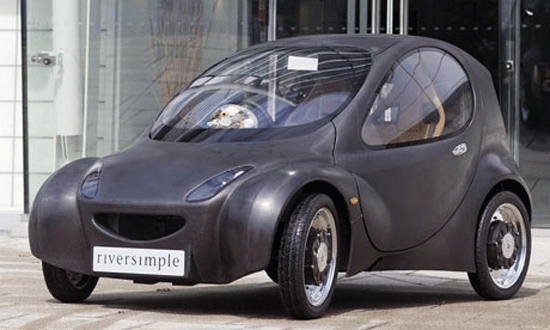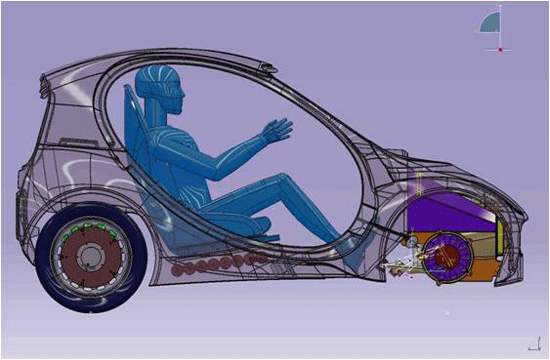
 At first glance, a car powered by super plentiful hydrogen sounds pretty good. The newly unveiled Urban Car, for example, emits less than 30 grams per kilometer of carbon dioxide, less than one third of the carbon produced by Volkswagen's Polo Bluemotion, creators Riversimple told CNN.
At first glance, a car powered by super plentiful hydrogen sounds pretty good. The newly unveiled Urban Car, for example, emits less than 30 grams per kilometer of carbon dioxide, less than one third of the carbon produced by Volkswagen's Polo Bluemotion, creators Riversimple told CNN.

Photo via The Guardian
If all goes well, this machine could roll-out in 2013. It's also rather cute with a less Jetson's-style design, when compared to some other prototypes out there. (The hydrogen Honda FC looks like it should be carrying Darth Vader.)

Photo via Missionzero.org
Although it doesn't go particularly fast--maxing out at around 50 miles per hour--the Urban Car is perfectly suitable for a jaunt around town, super light weight (350 kilos), and goes from 0 to 30 in less than six seconds.
Problems with Hydrogen-powered Cars
But there are some major problems with hydrogen cars, namely:
1. Can we afford the car?
2. Will the car (hyrdogen cars tend to die earlier) last long enough to be a practical investment?
3. Can we afford the necessary infrastructure for hydrogen fuel stations?
The Urban Car team tackles the first two questions head on. To remove the short lifespan problem and make it affordable, Riversimple would introduce the car through a leasing system, bringing the cost down to around $330 a month. Of course, a product service system doesn't actually reduce the large amount of money that goes into making these cars, meaning hydrogen cars are, at the moment, not a sustainable investments for car companies. To make this happen, we would need major demand.
Which brings us to the infrastructure. Naysayers say this is the biggest reason against hydrogen cars, but look at where we are now, with gas stations at every corner. If there is enough demand, the infrastructure will come, and investors will cash in on a major payoff in the end.
So yes, there are a lot of ifs, with hydrogen cars, something that Riversimple tackles with a brilliant plan: Open sourced licence agreements. Have a way to solve these problems or make the car suitable for your community? Let them know, and soon we could all be riding around at a fraction of the emissions, without sourcing rapidly depleting fossil fuels.
More From TreeHugger and Planet Green on Green Cars
6 New Hybrid Cars
Obama Kills Hydrogen Car Funding
Production of Honda FCX Clarity Hydrogen Car Begins
This Hydrogen Car is a Real Toy!
More From Mairi Beautyman on Huffington Post
Germans and Their Scornful View of Tap Water
Could You Live Without a Refrigerator?
The Octuplets and their Massive Carbon Footprint: 30,400 Disposable Diapers and Counting